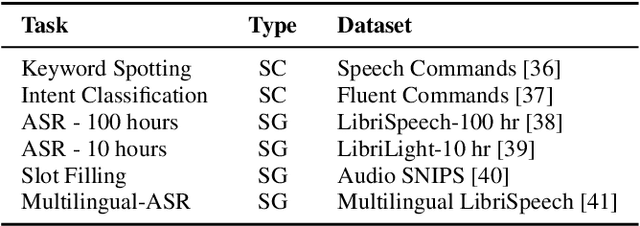Prompting and Adapter Tuning for Self-supervised Encoder-Decoder Speech Model
Paper and Code
Oct 04, 2023



Prompting and adapter tuning have emerged as efficient alternatives to fine-tuning (FT) methods. However, existing studies on speech prompting focused on classification tasks and failed on more complex sequence generation tasks. Besides, adapter tuning is primarily applied with a focus on encoder-only self-supervised models. Our experiments show that prompting on Wav2Seq, a self-supervised encoder-decoder model, surpasses previous works in sequence generation tasks. It achieves a remarkable 53% relative improvement in word error rate for ASR and a 27% in F1 score for slot filling. Additionally, prompting competes with the FT method in the low-resource scenario. Moreover, we show the transferability of prompting and adapter tuning on Wav2Seq in cross-lingual ASR. When limited trainable parameters are involved, prompting and adapter tuning consistently outperform conventional FT across 7 languages. Notably, in the low-resource scenario, prompting consistently outperforms adapter tuning.
 Add to Chrome
Add to Chrome Add to Firefox
Add to Firefox Add to Edge
Add to Edge